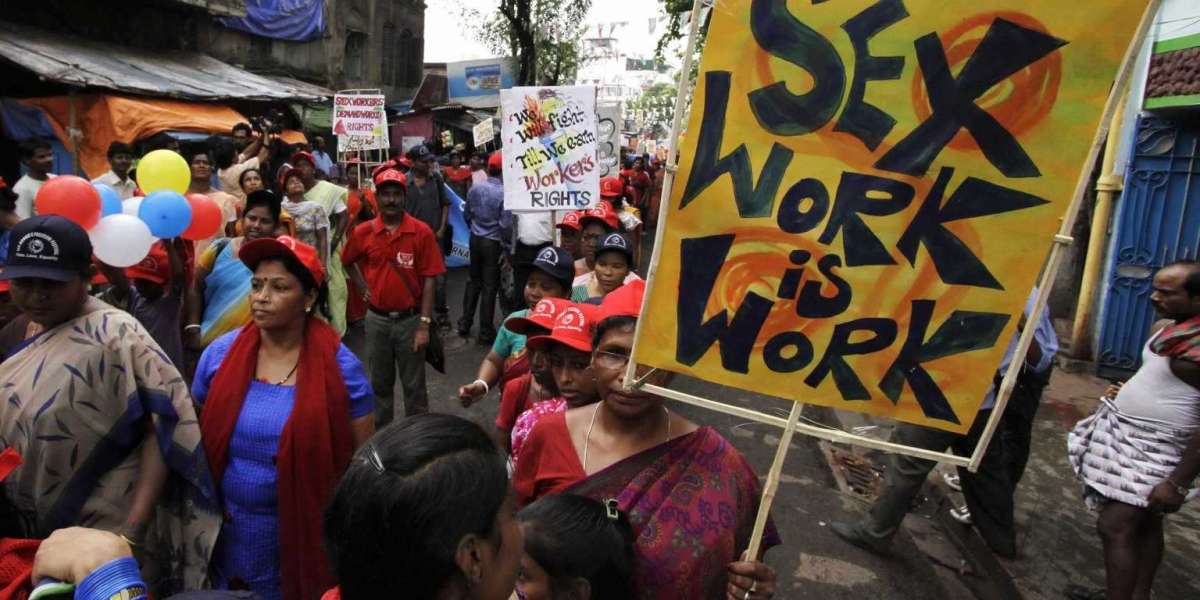The other day I was reading and I got to know a very surprising facts that prostitution in India is legal. Did you know that? It is one of the oldest profession in India, there is this general misconception that prostitution in India is illegal, rather prostitution is legal but pimping, owning and managing a brothel is illegal. If we look at the history of prostitution, I will come to know that a tawaif or a courtesan who catered to the nobility of India particularly during the Mughal Era. They excelled in contributing to music, dance, theatre and Urdu literary tradition. The culture of performing art of nautch, alluring style of popular dance Rose to prominence during the later period of Mughal empire and the British East Indian company rule. During the period of company rule in India by the British East Indian company in the late eighteenth and early 19 century and during the subsequent British raj the British military established and maintained brothelsfor it’s troop across India. Women and girls were recruited from poor ruler Indian families and paid directly by the military. The red light districts of cities such as Mumbai developed at this time. the governments of many Indian princely states had regulated prostitution in India prior to the 1860. The Cantonment Acts regulated and structured prostitution in the British military bases which provided for above 12 to 15 Indian women kept in brothels for each regiment of thousand British soldiers. They were licensed by military officials and were allowed to consort with soldiers only.
Talking about present day prostitution laws in India, the law is vague. The primary law dealing with the status of sex workers is the 1956 law referred to as The Immoral Traffic (Suppression) Act (SITA). According to this law, prostitutes can practise their trade privately but cannot legally solicit customers in public. A BBC article, however, mentions that prostitution is illegal in India; the Indian law does not refer to the practice of selling one's own sexual service as "prostitution". Clients can be punished for sexual activity in proximity to a public place. Organised prostitution (brothels, prostitution rings, pimping, etc.) is illegal. As long as it is done individually and voluntarily, a woman (male prostitution is not recognised in any law in India) can use her body in exchange for material benefit. In particular, the law forbids a sex worker to carry on her profession within 200 yards of a public place. Unlike as is the case with other professions, sex workers are not protected under normal labour laws, but they possess the right to rescue and rehabilitation if they desire, and they possess all the rights of other citizens.
In practice SITA is not commonly used. The Indian Penal Code (IPC) which predates the SITA is often used to charge sex workers with vague crimes such as "public indecency" or being a "public nuisance" without explicitly defining what these consist of. In 1986 the old law was amended as the Immoral Traffic (Prevention) Act or ITPA. Attempts to amend this to criminalise clients have been opposed by the Health Ministry, and has encountered considerable opposition. In a positive development in the improvement of the lives of female sex workers in Calcutta, a state-owned insurance company has provided life insurance to 250 individuals.
Over the years, India has seen a growing mandate to legalise prostitution, to avoid exploitation of sex workers and their children by middlemen and in the wake of a growing HIV/AIDS menace.
The issue of prostitution has become the need of the hour and the government agencies are required to address this issue at the earliest. The legalization of prostitution appears to be more practical and feasible than trying to abolish prostitution as the government has been trying it for details and hardly struck the note. The lives of prostitutes are saddening and it is in the hands of the society to evolve which could be catalyzed by the government institutions. The male prostitution industries still on recognised by law and it calls for due attention.







Akshay Prashant 4 yrs
Well Written #Lit